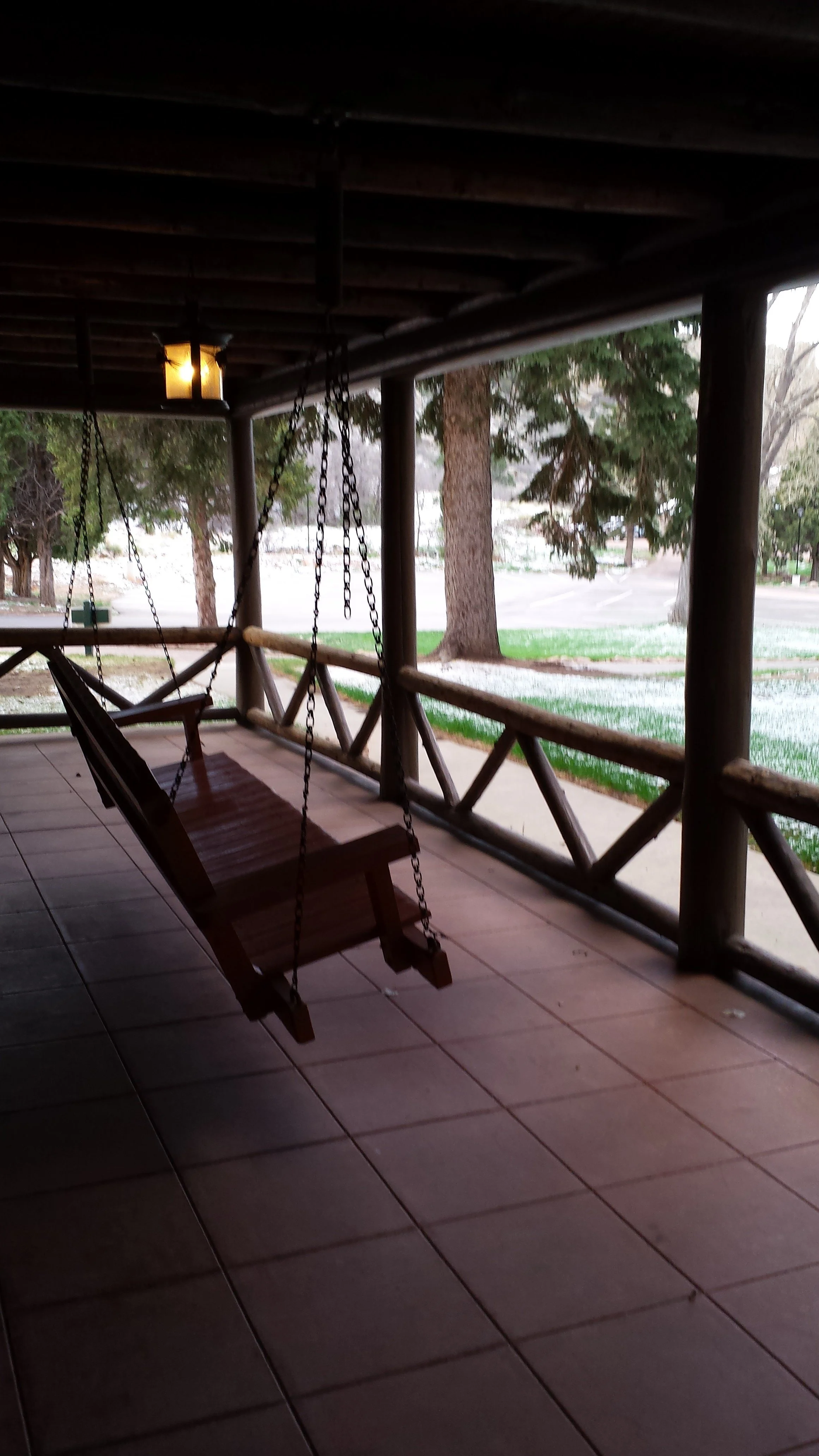Rescue and Deliverance
My buddy Victor reminded me of 2 Timothy 3:10-16.
This is the passage where Paul recounts his sufferings, persecutions, and perseverance while writing to his mentee, Timothy. He reminds him of the trials he endured in Antioch, Iconium, and Lystra among other places.
For perspective, you will recall it was in Lystra where Paul was stoned to death, taken to heaven, shown things too amazing for words, and then was dusted off and returned to his stone heap… where phenomenally he got up and walked into town. Being stoned to death is a brutal way to go. I’m wondering: When God breathed Paul’s life back into his battered body and he got up, was he still all beat up from the stoning? Were his clothes a mess? If so, he would have been a sight to behold!
Just a heads up: When you get to heaven, if you have designs on telling your story of struggle over dinner, don’t sit at Paul’s table. He was ship wrecked, beaten, bitten by a poisonous snake, imprisoned, secured with chains, put on trial, stricken blind, exiled in the desert, and much more.
What’s fascinating about this passage of Scripture is that Paul reviews his challenges with Timothy, then he concludes his recitation in 3:11b saying, “…and out of them all the Lord rescued me!”
Hmm. Not that I would doubt the venerable Apostle, but what he terms a rescue doesn’t sound like much of a rescue to me. Too quote Inigo Montoya: “Paul, you keep using that word (rescue). I do not think it means what you think it means.”
When I think of being rescued, I envision deliverance. You know, the concept of being saved out from, preserved, transported, shielded, protected.
So, I did some investigation.
Here’s what I discovered: When Paul said the Lord rescued him, he meant the Lord delivered him.
So much for my investigation. I’m still confused. I mean, Paul was beaten, crushed, persecuted, whipped, disrespected, etc. Where’s the deliverance? Where’s the rescue?
But then, why should I care about this? Why should you care? It’s ancient history.
As if anticipating this question, Paul answers in his next sentence: “Indeed, all who desire to live godly in Christ Jesus will be persecuted.”
Okay. Now I understand why I should care. Paul’s serving notice that his experience will be your experience and mine as well. Like him, we are caught in the midst of a battle between good and evil, light and dark. Because evil and deception exist, hardship is a certainty.
Now I really need to know what he meant by rescued and delivered?
When I read Paul’s litany of hardship, part of me thanks God I don’t live where they are beating people with rods and stoning social malcontents. But there’s another part of me that reads my inclusion in Paul’s experience and finds reassurance that my experience with hardship means I’m included in the life of Christ.
How much plainer could Paul be? “All who desire to live godly in Christ Jesus will be persecuted.”
My first thought is that if God rescued Paul by extracting him from his challenge, then God would sabotage Paul’s desire to live a godly life.
Why would God be motivated to do that?
My second thought is that hardship is an essential aspect of godly living. A life of ease, a life of tranquility, a life lacking tension is a life that trades the notion of heaven on earth for the certainty of eternal character forged through the fires of persecution.
But that—persecution—is problematic. Paul was beaten, and tortured, and eventually killed. That’s persecution. There were more Christians martyred for their faith in the twentieth century than all prior nineteen centuries combined? That’s persecution. Hebrews 11:39 ff is persecution.
Trying to correlate Paul’s letter to me, I assess my situation: My thumb is in a cast, the frost nipped my spring plantings, inflation has devalued my retirement holdings, I’ve fought an upper respiratory bug for several weeks, there is yet another insurance claim to process, and once again, the grocery didn’t have distilled water for my nasal rinse. Am I suffering? Do these trials constitute persecution?
I do not believe Paul is saying you and I should seek out persecution or pray for suffering. I think he’s saying challenges—using the broadest definition of persecution—will come our way, and for those who are in Christ Jesus, hardship will come our way specifically because we are Believers. Jesus summed it up when He said, “In the world you will have tribulation” (Jn. 16:33).
Trials are inevitable. But assessing a hardship with qualitative or quantitative measures is pointless. Who’s to say decades of dripping apathy and dispassionate spiritual musings is less harmful than a momentary affliction? Who’s to say collective imprisonment in a gulag is worse than soul-sapping isolation while surrounded with indifference at Sunday School? I mean, so often, “I’ll pray for you” really means, “I’m done listening to what’s bothering you.”
On a trip to Albania shortly after the collapse of their totalitarian government, a group of Believers asked me, “How can we pray for America?” To be clear: I’m looking at folks who are destitute from decades of Socialistic-Communism, people who were imprisoned, beaten, tortured, and maimed for their faith who want to know what needs American’s suffer so they can engage in intercessory prayer.
As I looked into their eyes, they were alive. Their souls were robust even though their bodies were malnourished and unkempt. I thought of home—America, the West, and the many Believers I’ve met. In many, there is no light in their eye, no passion burning in their soul, no conviction of faith, no tempered trust.
The contrast was striking. It actually took me aback.
I answered, “American Believers are afflicted with apathy. Because it seems there is no stake in their faith, there is no spark of faith. For many, their souls are burned out for lack of vision, destitute, drained. Instead of a passionate love for God, there are religious routines. These needs are the result of years and years of apathy and indifference. This is what I would ask you to pray about on behalf of your family in America.”
Who’s to say who is suffering more in this comparison?
Hardship is relative. What’s important is whether or not your soul seizes the godliness offered during the demand on your soul’s health.
The question is not what constitutes trial or how to escape tribulation. The question is: What will you do when hardship comes your way?
Two thoughts: 1) Recognize that in order to fulfill your desire for godliness, persecution is essential according to Paul. 2) Recognize that Paul goes ahead to offer instruction and encouragement about what you do when encountering and enduring persecution.
Paul exhorts: Consider what you know, what you’ve learned about spiritual living; think about the wisdom that is yours because your faith is rooted in Scripture (vss. 14-15).
Then his summation: “All Scripture is inspired by God and profitable for teaching, for reproof, for correction, for training in righteousness” (v. 16).
Hardship, suffering, injustice, pain, heartache, momentary affliction, interminable perseverance—anything and everything constituting persecution—is a given because you desire to live a godly life.
Since this is the case, God rescues you in the midst of this inane, pointless, soul-sapping suffering so that you are not without hope, not left to utter deception, and do not become a fool deluded by deceit. Instead, by marinating your life in Scripture, God delivers you from destitution of soul and uses hardship to form godly character in you, the very thing your heart desires.
Why does God do this?
Because in this life, to quote Jesus, tribulation is inevitable, inescapable. Therefore, God rescues and delivers by turning all trial to your advantage and His glory “so that you may be adequate, equipped for every good work” (v. 17).
“Adequate.” Not my favorite word. It seems passing, fair, okay, marginal… until I look more closely at the exact definition: So that you may be adequate, complete, finished, fully equipped.
As this world takes its best shot at you, rather than succumbing to its hopeless deceit, God will superintend via Scripture—which He inspired—your tempering, strengthening, composing. Indeed, when all hell is breaking loose around you, because you belong to God and know His Word, you will be able to keep your wits about you when everyone else is losing theirs.
You are adequately equipped and prepared to go through the difficulties ahead.
Occasionally, God extracts us out of our trials. But this is not God’s norm. Most of the time, God gives grace to the afflicted, i.e., adequacy to go through the depths, not around.
The two takeaways are: 1) Hardship is inevitable. 2) As long as you immerse yourself in Scripture and recall your faith in Christ Jesus, you are fine.
Let’s contemplate with our eyes wide open, however: It’s possible the world has not felt so hopeless since World War II. In fact, the statistical signs of hopelessness in the West are greater than at any other time in our brief history. The consensus is that the period of time most resembling ours is 1850-1860, a decade of such disconsolation that our demoralized nation resolved its hopelessness with The Civil War.
Only a fool believes they know what’s actually transpiring today. The realist understands deceit and deception are the order of the day (cf. 3:13).
Consider the revelations of the Twitter Files: Our chief scientists suppressed the truth of the pandemic while telling us to believe the science. The primary Federal agencies tasked with protecting us blatantly lied to us, infringed upon us, and colluded with mainstream media, big tech, and the Executive Branch of government to suppress personal freedom. Now, the Twitter Files are being suppressed. “The Social Dilemma” revealed that digital news feeds ensure that everyone possessing a connected device sees a different version of the news. Just over 5 billion people are online, 64.4% of the world’s population, and every one of them is being fed something different by the tech gods.
Is it any wonder we are fractured as a people? Is it any mystery why hope is at an all-time low? Is it truly a conundrum why our youth are killing themselves by opioids and suicide?
With the recent introduction of AI (artificial intelligence) chat, all truthfulness, morality, and ethic are compromised at best, or at worst blown like dust in the wind. As my brother said when ChatGPT exploded on the scene a month ago, “Every day is now April Fool’s Day.”
Discerning the truth is a fool’s errand.
What are you going to do? How will you maintain your wits?
Could the answer possibly be as simple as trusting your heart’s desire for godliness while marinating your soul with Scripture?
No matter the lunacy, the trial, the hardship, indeed, the persecution you face each day, heed Paul’s instruction. Personally, I pray a prayer like this: “Father, your Word is inspired. Would you fill my soul with your perspective and inspire me, please? Amen.”



